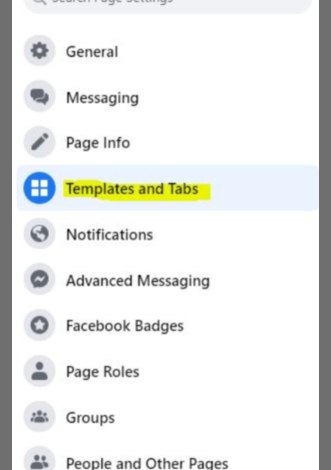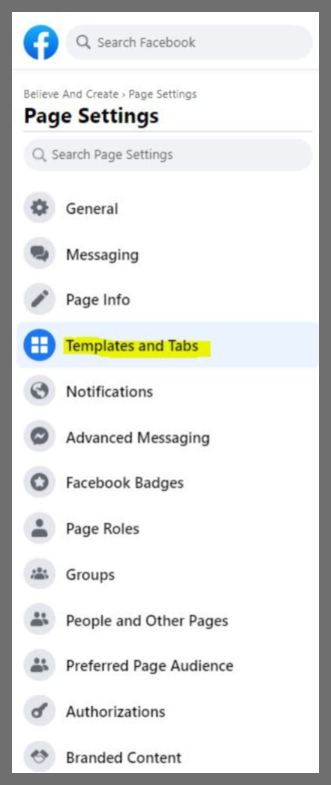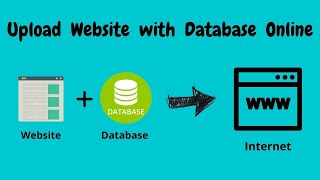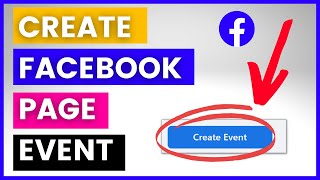How to Blog on Facebook: Everything You Need to Know

While most bloggers use Facebook to support and promote their existing blogs, you can also blog directly to Facebook for free. If you want to learn how to blog on Facebook, it’s important to understand the benefits and limitations of blogging on this popular social platform.
The Two Ways to Blog Directly to Facebook
Here There are two ways to blog on Facebook. The first option is Facebook posts, which are best for short posts. The second way to blog directly on the social channel is Facebook Notes, which allows you to create simple but attractive longer blog posts that are easy for your followers to read.
Reading: How to use facebook to create a blog
How to blog with Facebook posts
h3>
When you think of the term blogging, you might think of articles that are a bit longer than most social media posts. However, there is also a practice called microblogging, in which a blogger creates a short piece of relevant and highly focused content to share with an audience. Facebook is just one of many platforms ideal for microblogging – Instagram, Twitter and Tumblr are other popular microblogging sites.
Many bloggers use Facebook posts for microblogging. Facebook is the ideal platform for sharing short videos, images and text-based content. The maximum number of characters for Facebook is 63,206; However, studies show that Facebook posts with 80 characters or fewer generate 88% more engagement. When it comes to posting on Facebook, shorter posts with eye-catching images or videos usually work best.
Just because short posts work well doesn’t mean longer posts can’t work. For example, author Jeff Foster typically writes posts of between 300 and 1,000 words that often garner massive amounts of likes, shares, and comments that most bloggers would envy.
To blog successfully on Facebook, you have to understand your audience and find out what they want from you. Experiment with different post types and lengths. Then do more of what works best for your followers.
How to blog with Facebook Notes
Facebook Notes is a feature offered on the social channel and probably doesn’t get as much attention as it deserves. You can use Facebook Notes to create the same types of blog posts you might host on popular blogging platforms like WordPress and Squarespace.
How to add Facebook Notes to your Facebook Page Add
The Facebook Notes feature isn’t automatically active on your Facebook Page, so you’ll need to add it. You start this process by clicking on your Page Settings tab on your Facebook Page admin screen.
Once you have opened your Page Settings screen, navigate to the Templates and Tabs menu option in the left sidebar.

After clicking the Templates and Tabs menu, you’ll see several options, and one of them is Notes. Move the slider to the right to enable notes for your Facebook Page.
Once you’ve followed the steps above, Facebook Notes will be active on your Page. You are now ready to blog.
How to create a blog post with Facebook Notes
Make sure you are logged in as your Page admin. Navigate to your homepage on Facebook where you will see your Facebook featured tabs, which may differ slightly from others’ pages as you may have different tools loaded. If you don’t see Notes in your recommended tabs, just click the down arrow next to the More tab and Notes will appear.

If you click Notes in your tab bar, you will see:

To easily add a new blog post via Notes click on the top right the Add Note button. Once you do this, a blank template will appear (see below). You will use this template to create your blog post.
How to format your facebook notes blog post
As you can see from the image above, the facebook notes interface pretty simple. You can add an image, a title, and then the content of your blog post. The current date is automatically added to your post. You have the choice to delete, save or publish your Facebook note. If you save the note, a draft is saved but not published. You can save posts and come back later and continue writing or editing, and then when you’re ready, you can publish them.
The optimal image size for Facebook notes is 1200 x 445 pixels. Since your featured image will appear in your followers’ feeds — and affect how many are interested enough to read your post — it’s important to choose an eye-catching image.
While the Facebook note formatting features can hardly be described as robust, the platform gives you enough tools to create attractive blog posts. Most formatting tools only appear after you start typing. Just click the circle plus icon and paragraph icon to see your formatting options.

Facebook Notes allows you to insert images and HTML code into your blog posts. You can also embed videos, gifts and links to content on other websites in your Facebook notes.

See also: How to Create Your Own Property Management Website
Blog post text formatting options are displayed by clicking the paragraph icon. You can resize the headings or add bulleted, numbered lists, and quotes to your blog articles. You can also bold and italicize your text.
Once you’ve published your blog post with Facebook Notes, it will look like this in your followers’ Facebook feeds:
As Like you only a short text example of your blog post will appear in your followers’ feeds. Your fans will need to click “View More” to read your full blog post. Because of this, it’s important to ensure your image and blog post introduction are compelling. If you don’t do this, your users won’t be persuaded to click the “See More” link and your blog won’t be viewed.
If your followers click the “Show More” link, they will You’ll see your full blog post without ever leaving Facebook (see example below).
A big warning about Facebook notes
Facebook notes are a handy and free one Ability to blog on Facebook. Although this feature was a little more popular a while ago, it really hasn’t caught on like wildfire and I see fewer and fewer people using it today. It seems that even Facebook CEO Mark Zuckerberg uses Notes sparingly.
Although there has been no announcement from Facebook to remove this feature from its platform, Facebook does make service changes from time to time. If you’re blogging about Facebook Notes on Facebook, I strongly encourage you to keep a copy of those posts elsewhere. I would hate to see you lose all your content if Facebook stopped supporting their notes feature.
How do I make money blogging on Facebook?
You can use the Blogging on Facebook makes money selling products or services or through affiliate marketing or sponsored posts. You can also open a shop on Facebook. However, if you want to make the most money as a blogger, your best bet is to create an independent blog using a popular blogging platform like WordPress, Squarespace, or Wix.
The pros and cons of direct blogging to Facebook
Facebook is the most popular social media channel in the world. In the US alone, Facebook has more than 221 million users. As a blogger, you simply cannot afford to ignore this social media giant.
The key question to ask yourself is not can you start a blog on Facebook – you can definitely – but rather, should you blog directly on Facebook?
To help you make a fully informed decision about whether blogging on Facebook is the right strategy for you , let’s look at the pros and cons.
The Top Pros Ways to blog directly to Facebook:
- Free: You must don’t pay a penny to blog on Facebook.
- Large user base: Facebook has a huge active user base that spans almost all age groups.
- Easy: It’s easy to start blogging right on Facebook. li>
- Less reader resistance: Lots of social “scrollers” e.g Prefer to stay on whatever social channel they’re on. Blogging directly on Facebook allows followers to read your posts without leaving Facebook.
- Possible Benefit of Facebook Visibility: Facebook loves it when you show your followers on the social Keep channel instead of sending them to another site. Facebook can reward you for blogging directly on Facebook by increasing the visibility of blog posts in your followers’ Facebook news feeds.
The main disadvantages of blogging directly on Facebook include:
- No organizational tools: There is no way to organize or categorize your Facebook blog posts.
- Limited formatting features: Blog post formatting features on Facebook are extremely limited; poor formatting often results in a subpar reading experience.
- Difficult to build a brand: You don’t get a private domain on Facebook, which makes building a brand and reputation for your blog extremely difficult difficult.
- Search Disadvantage: You have more control over Search Engine Optimization (SEO) on your own blog than on Facebook blog posts.
- Monetization is limited: There aren’t as many ways to monetize your blog on Facebook as there are on your own website. For example, you can’t make money from advertising on your Facebook blog.
- Full blog content is hard for users to find: While new Facebook blog posts show up well in feeds become , it’s very tedious for followers to go back and find your other blog posts; this is something visitors to a standalone blog site can easily do.
- Facebook is not widely used for traditional blogging: While people promote their blogs on Facebook, it is the platform isn’t as popular for hosting longer-form blog posts (300+ words).
- Could lose all your work: You’re at Facebook’s mercy; You could always remove your blog content (although you’d probably get a warning before doing so).
Is Facebook the right blogging platform for you?
Go to Facebook Blogging makes a lot of sense for some people, but whether it’s right for you depends on your goals. If you don’t already have a website for your blog and aren’t sure if you want to start your own blog, blogging on Facebook is an easy way to get started as a blogger.
If you blog to make money If you want to earn money, I recommend creating your own blog and using it as your primary blogging platform. This gives you the most control over your site and the best chance of winning. That being said, you can and should still create and use a Facebook Page to promote your blog. You may also want to blog directly to Facebook from time to time as it can give you a little edge in engagement and visibility.
The Best Facebook Blogging Alternative
You can Using Facebook to blog, you are at Facebook’s mercy as to who sees your posts and when they see them. Suppose you build a Facebook follower base of 100,000. Not all of these people will see all of your blog posts. In fact, on average, you can expect less than 5% of your fans to see each post unless you support all of that content through paid advertising – which would get very expensive very quickly.
I don’t get it incorrect; Facebook is a wonderful marketing and advertising tool for bloggers. It’s just not an ideal blogging platform. If you are serious about building a successful blog, I recommend building your own website using a top blogging platform. Then use Facebook as a social channel to spread news about your blog, get followers, build a community and promote your products or services.
In my opinion, the best alternative to creating a Facebook Blogs to set up a self-hosted WordPress blog with Bluehost as your hosting provider. This gives you the ability to have your own domain, brand your blog, scale it as your business grows, and customize your blog the way you want it. Plus, you can unleash the power of Search Engine Optimization (SEO), giving your blog content a better chance of being visible in Google Search.
You can start with a self-hosted WordPress blog for starting at $2.95 per month with Bluehost as your hosting provider.
See also: How to Build an Online Training Website in Less than 450
Visit Bluehost
See also: Blog Title Hit List – Stay Organized When Blogging
How to use Facebook to promote your blog
Blogger and blogging consultant, I understand firsthand the tremendous value of using Facebook as a marketing and advertising tool. Every time I publish a new blog post on my self-hosted WordPress blog, I always add that post to my Facebook page to make sure it reaches my large base of Facebook fans and to add a sense of community to my blog create target audience.
I also occasionally use Facebook ads to target my ideal audience and introduce them to products and services that I think they might like. I even have a Facebook group for my blog where I build a sense of community and host special online learning events and challenges.
There are so many ways to use Facebook to make more money as a blogger . You can expand your blog monetization efforts by posting sponsored posts on Facebook. And you can even sell products directly on Facebook.
Use Facebook to promote your blog posts
You can manage Facebook posts manually or through a social media management tool like Add Hootsuite to your site or Buffer (I personally use Buffer). All you have to do to link an article from your personal or business blog to Facebook is click Create Post on your Facebook home page. Then write a short introduction and include the URL of the post you are discussing. Facebook gives you the option to publish your post now or at a later date.
Facebook also gives you the option to add more features to your post. These options vary a bit, but here are the options offered at the time of writing this article:

You can also boost your Facebook post — starting at $1 a day — to get more people to see and engage with your post. A boost is a form of Facebook Ads, but in my opinion it’s usually not as effective as other advertising options available through Facebook
This is what your new Facebook post will look like after adding your blog content and link, but before you clicked the post button:
Posts on your blog on your own site will appear slightly different in your followers’ feeds than blog posts created in Facebook Note subtle differences best.
Examples of Popular Facebook Post Formats Used by Bloggers
They say variety is the spice of life, and adding variety to your blog’s Facebook page is a good way to get better engagemen t and getting better overall results from content including videos and questions in addition to links to your blog posts is a smart strategy for maximizing your blog’s exposure on Facebook.
Example 1: Add a video on Facebook to promote your blog
Videos get about 59% or more engagement on Facebook than any other type of post. You can post live videos to Facebook or link to existing videos on your blog or YouTube channel. According to HubSpot, Facebook users spend three times longer watching live video than non-live video.
Since 85% of videos on Facebook are watched without sound, be sure to add captions to your videos powered by depend on tone to convey important messages. Some videos, like some “how-to” videos, don’t depend that much on audio to work well.
Example 2: Create a personal connection on your Facebook page
Remember Facebook is a social platform and it pays to get personal from time to time. Try posting audience questions, personal stories, and anecdotes on your blog’s Facebook page. Then ask your followers to join the conversation. This is a great way to appear more authentic to your followers and show them that you care. People love doing business with people they can relate to and trust.
Adding candid pictures of yourself can also make you more sympathetic to your audience.
Example 3: Add Amazing Photos to Your Facebook Page
While all blog niches can benefit from including attention-grabbing images on Facebook Pages, there are some niches where stunning graphics are essential . For example, travel, fashion, food, interior design, and design blogs all need to add compelling images to their pages.
One of the main benefits of compelling images is that they get shared a lot – often by a lot of people . This can give your blog more visibility.

Bottom Line
You can blog on Facebook for free using either the Post or Facebook Notes feature of the social channel. For top results in blogging—especially if you want to make the most money from your blogging efforts—the best way is to create your own blog and use Facebook to promote that blog.
You can create a Create a self-hosted WordPress blog with Bluehost as your hosting provider for only $2.95 per month. WordPress is the most popular blogging platform in the world, and Bluehost offers secure, flexible, and affordable hosting solutions and comprehensive customer support. Bluehost even comes with a free custom domain for your first year.
See also: How to Build an Online Training Website in Less than 450
Visit Bluehost
See also: Blog Title Hit List – Stay Organized When Blogging
.




